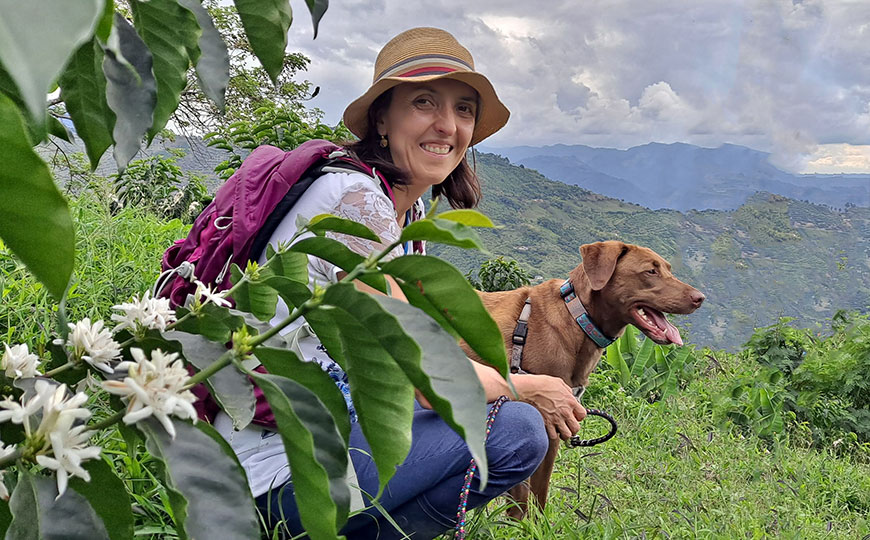Eivy Monroy
Buenavista, Quindio

How long have you been growing coffee and what got you started?
“My family has a long history of growing coffee in small-scale remote mountain areas of Colombia, and my training and professional experience has been dedicated to ecosystem restoration and environmental engineering. Now, I transfer this know-how and consciousness to my own small 25-acre tropical farm in Buenavista, Quindio. For us, conserving land and protecting habitats is paramount while at the same time growing coffee of high quality, and actively learning from coffee extension professionals, experienced neighbor producers, and cooperating with partners who value the work we do.”
What is your favorite part of growing coffee?
“The joy of coffee growing is connected to maintaining healthy soils, plant and bird diversity, water conservation, and local livelihoods. The whole process of selecting and planting landscapes of high-quality coffee varieties together with other fruit crops and seeing them grow and prosper under constant maintenance to bloom and produce healthy red cherries is special. Now that the team has mastered high quality hand harvest, post-harvest selection, processing, monitored drying, the end cupping result shows the benefits!”
Conversely, what is the hardest part of your job?
“In a way, coffee production in the supply chain is not equitable with respect to total value added. To overcome that, we embrace Specialty Coffee, which is coffee that is produced for quality and not quantity, in harmony with our surroundings and our community. Specialty coffee is sold to clients who are seeking coffees with intention, and those are paid more fairly. One of these approaches is through Direct Trade, where the roaster purchases the coffee directly from the producer, ensuring transparency, traceability, and better shares for everyone, such as the case with our partners at Lardera Coffee.”
What is unique about how you grow and harvest coffee?
“Our commitment to preserving the historic local culture and landscape of a beautifully maintained coffee farm in the long term is solid. We always seek the best practices and the expertise of others in seed selection, planting, soil management, growing, harvesting, processing, and managing a sustainable farm. As mentioned before, for Specialty Coffee, we only harvest ripe cherries, followed by manual post-selection by women of our community. We specialize in coffee processing: washed, honey and natural. The most unique thing about us is that we work closely with our clients to tailor what they want whenever possible. Finally, we never mix coffee varieties or processes.”
What are your plans to continue improving quality?
“We have raised the bar for quality of our coffee products, the diversity of arabica coffee varieties, processing technologies, and investing in our team. Improving quality means we will continue reinvesting in environmentally sustainable coffee growing, appropriate farm technologies, experimenting with new coffee processes, fermentation regimes, and participating in international specialty coffee forums to reach social, environmental, and economic transparency. Being able to connect with other producers, importers, roasters, baristas, and coffee consumers is the best way to find out what we need to do better and how.”
